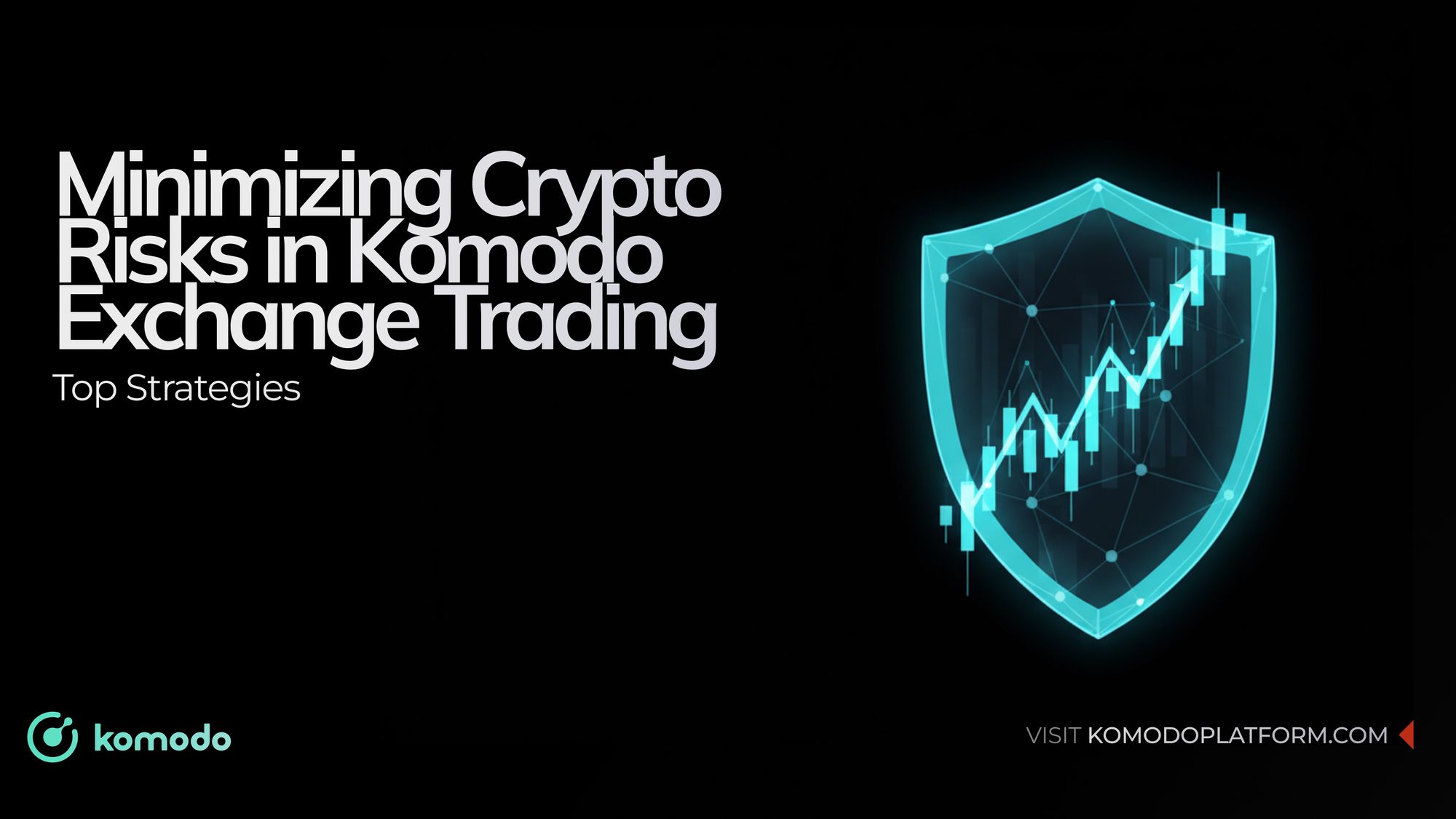Trading on crypto exchanges can be profitable, but it comes with inherent risks. Understanding how to manage crypto risk is important for protecting your assets and making informed decisions. In this article, we’ll cover practical strategies for balancing crypto risks while trading on Komodo Exchange, helping you minimize losses and maximize your opportunities.
1. Choose a Secure and Reliable Platform
Selecting a trustworthy exchange is the foundation of any successful trading strategy. The platform you choose impacts your security, trading speed, and ability to manage crypto trading risks effectively.
Use a Trusted Exchange
The first step in securely storing crypto is selecting a platform with a strong reputation for reliability and security. Komodo Exchange offers encrypted transactions and self-custodial wallets to provide a safer trading environment.
Reduce Platform Risks
Using a reputable platform helps reduce the chance of hacks, phishing attacks, or unreliable systems. Regularly verifying platform features guarantee your crypto risk stays low while you exchange native tokens.
2. Diversify Your Portfolio
Diversifying your investments spreads risk across multiple assets and reduces exposure to sudden price fluctuations. Effective diversification is one of the most reliable ways of balancing crypto risks in volatile markets.
Spread Your Investments
Avoid putting all your funds into a single token or asset class. Spreading your holdings across multiple cryptocurrencies on Komodo Exchange can protect your portfolio from unexpected losses.
Protect Against Market Swings
Diversification guarantees that a drop in one token doesn’t severely impact your overall holdings. This is a key step in managing crypto trading risks while maximizing potential returns.
3. Set Clear Entry and Exit Points
Having a predefined strategy for when to buy and sell helps manage crypto risk efficiently. It allows traders to make disciplined decisions rather than reacting emotionally to market volatility.
Plan Your Trades
Determine your buying and selling points before executing any trades. Planning helps limit losses and guarantee your native tokens exchange activities remain organized and intentional.
Use Stop-Loss and Take-Profit Orders
Implementing stop-loss and take-profit orders protects your investments from extreme market swings. This approach is vital for balancing crypto risks and maintaining consistent performance on Komodo Exchange.
4. Stay Informed About Market Trends
Keeping up with market news and analysis reduces exposure to unexpected events. Traders who actively monitor updates are better equipped to adjust their strategies and minimize crypto trading risks.
Monitor News and Analysis
Crypto markets are highly dynamic, and timely news can affect token prices noticeably. Staying informed about developments related to your native tokens exchange allows for proactive decision-making.
Adjust Strategies Proactively
Being aware of market trends lets you modify your trading approach when necessary. This is a critical part of balancing crypto risks and maintaining a profitable trading strategy.
5. Use Security Best Practices
Protecting your crypto account is a fundamental part of minimizing crypto risk. Strong security measures guarantee your assets remain safe from hacks or unauthorized access while trading on exchanges.
Protect Your Accounts
Enable two-factor authentication (2FA) and use strong, unique passwords for your exchange accounts. Storing most assets in self-custodial wallets further reduces exposure to crypto trading risks.
Reduce Exposure to Threats
Avoid leaving large amounts of crypto on exchanges for extended periods. Implementing these security practices on Komodo Exchange strengthens asset protection and reduces overall crypto risk.
6. Start Small and Scale Gradually
Starting with smaller trades helps you learn the market without taking on excessive crypto risk. Gradually increasing your trading volume as you gain experience is a safe way of balancing crypto risks.
Limit Initial Exposure
Begin with small amounts to understand how tokens behave and how the exchange functions. This approach reduces potential losses while allowing you to refine your trading strategy.
Increase Gradually
Once you are confident in your trading plan and platform reliability, you can increase your investment. Scaling gradually helps manage crypto trading risks while optimizing opportunities on Komodo Exchange.
Minimizing Crypto Risks for Smarter Trading with Komodo Exchange
Managing crypto risk is a vital part of successful trading on any exchange. By diversifying your portfolio, setting clear entry and exit points, staying informed about market trends, and following strong security practices, you can effectively balance crypto trading risks. Applying these strategies on Komodo Exchange allows you to trade more confidently, reduce potential losses, and make smarter decisions in a volatile market. With the right approach, minimizing crypto risk becomes an integral part of building a consistent and sustainable trading strategy.
FAQs
Are crypto trading risks higher for new traders?
Yes, inexperienced traders are more exposed to errors and market volatility. Learning strategies and starting small can help reduce crypto risk.
Can I use automated tools to manage crypto risk?
Yes, trading bots and portfolio trackers can help monitor and manage crypto trading risks, but they must be used carefully and securely.
How important is research in balancing crypto risks?
Research is vital. Understanding market trends, token fundamentals, and platform reliability can greatly reduce crypto risk and help with balancing crypto risks.
